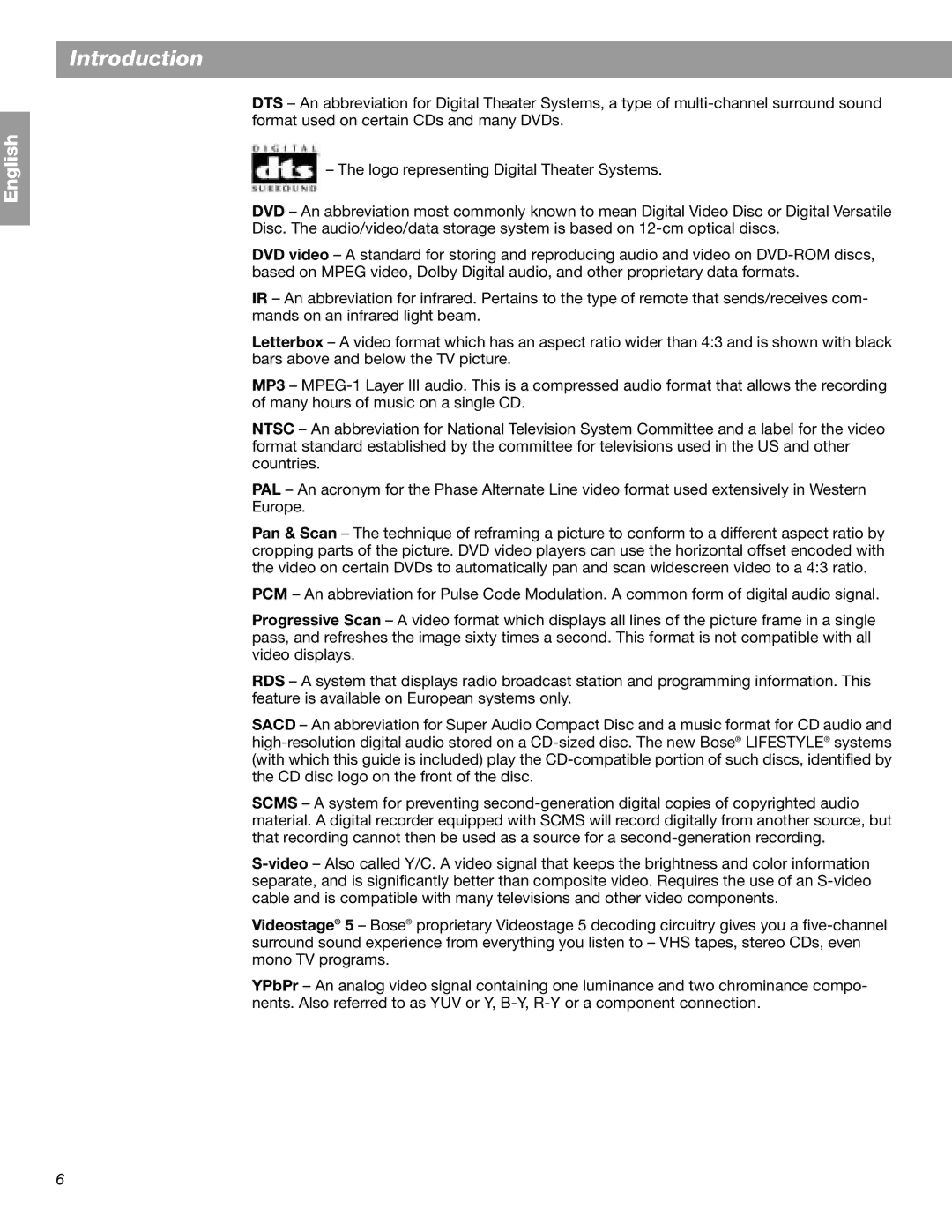
English
Introduction
DTS – An abbreviation for Digital Theater Systems, a type of
– The logo representing Digital Theater Systems.
DVD – An abbreviation most commonly known to mean Digital Video Disc or Digital Versatile Disc. The audio/video/data storage system is based on
DVD video – A standard for storing and reproducing audio and video on
IR – An abbreviation for infrared. Pertains to the type of remote that sends/receives com- mands on an infrared light beam.
Letterbox – A video format which has an aspect ratio wider than 4:3 and is shown with black bars above and below the TV picture.
MP3 –
NTSC – An abbreviation for National Television System Committee and a label for the video format standard established by the committee for televisions used in the US and other countries.
PAL – An acronym for the Phase Alternate Line video format used extensively in Western
Europe.
Pan & Scan – The technique of reframing a picture to conform to a different aspect ratio by cropping parts of the picture. DVD video players can use the horizontal offset encoded with the video on certain DVDs to automatically pan and scan widescreen video to a 4:3 ratio.
PCM – An abbreviation for Pulse Code Modulation. A common form of digital audio signal.
Progressive Scan – A video format which displays all lines of the picture frame in a single pass, and refreshes the image sixty times a second. This format is not compatible with all video displays.
RDS – A system that displays radio broadcast station and programming information. This feature is available on European systems only.
SACD – An abbreviation for Super Audio Compact Disc and a music format for CD audio and
SCMS – A system for preventing
Videostage® 5 – Bose® proprietary Videostage 5 decoding circuitry gives you a
YPbPr – An analog video signal containing one luminance and two chrominance compo- nents. Also referred to as YUV or Y,
6
